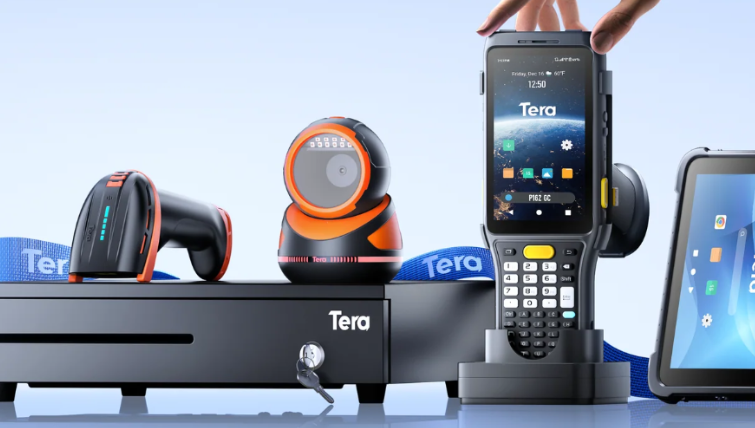The Digital Transformation of Retail and Logistics with Mobile Computer Scanners

The Rise of Mobile Computing in Core Operations
In today’s fast-paced commercial environment, mobile computer scanners have become essential tools. These devices are driving a significant transformation in the retail and logistics sectors. By combining data collection, real-time processing, and mobile computing into a single, portable unit, they empower frontline workers to optimize workflows and boost operational efficiency. Their impact is felt from the warehouse floor to the final point of customer interaction.
These versatile devices integrate the functions of a barcode scanner, a computer, and a communication tool. This allows businesses to move beyond simple data capture. They can now process information, run specialized applications, and sync with central business systems instantly. This capability is fundamentally changing how inventory is managed, orders are fulfilled, and customers are served.
Streamlining Operations in Logistics Management
The logistics and supply chain industry relies on speed and accuracy. Mobile computer scanners provide the technological backbone for modern logistics management, enabling precision and visibility throughout the entire process. These devices function as smart hubs, coordinating complex operations with ease.
See also: Custom Homes in Hamilton: Expert Design and Build Insights
Warehouse Efficiency
In warehouse management, mobile computers are indispensable. During receiving and shipping, staff can quickly scan barcodes to update inventory data in real time. This eliminates the need for manual record-keeping and dramatically reduces human error. The result is a more accurate, up-to-date inventory system, which improves warehouse turnover efficiency.
For inventory counting, these devices allow staff to conduct rapid checks without disrupting operations. The mobility of the scanner means workers can move freely, scanning items directly on shelves and pallets. This mobility accelerates the entire inventory management cycle and enhances overall operational efficiency.
Enhancing the Supply Chain
Beyond the warehouse walls, mobile computers optimize sorting and delivery. Couriers use these devices to receive tasks, navigate routes, and scan packages for confirmation. This system enables full-process visual tracking and supports paperless operations, bringing transparency to the supply chain.
In transport management, drivers can confirm deliveries and provide status updates while on the move. Meanwhile, managers monitor progress remotely, ensuring that every stage of the logistics process is synchronized. This real-time information exchange allows for proactive decision-making and helps mitigate potential delays before they become significant issues.
Revolutionizing the Retail Experience
In the competitive retail sector, customer experience is paramount. Mobile computer scanners act as all-in-one assistants for store staff, helping to create a seamless and efficient shopping environment. Their application improves both front-end service and back-end management.
In-Store Operations
Mobile checkout is one of the most visible transformations. Using a mobile computer, staff can process transactions anywhere in the store, effectively busting long queues at fixed checkout counters. This flexibility reduces customer wait times and enhances the overall shopping experience.
These devices also empower staff to provide better service. By scanning an item’s barcode, an employee can instantly access product information, check stock levels at other locations, and access member profiles. This allows for personalized service that strengthens customer loyalty.
Behind-the-Scenes Management
Effective retail depends on what happens behind the scenes. Mobile computers are crucial for product management tasks like rapid inventory checks and price updates. Staff can walk the aisles and scan shelves to ensure pricing accuracy and identify restocking needs. This ensures shelves are well-stocked and pricing is consistent, preventing lost sales and customer frustration.
The integration of these devices with central systems means that inventory data is always current. This accuracy is vital for making informed decisions about restocking, preventing both stockouts of popular items and overstocking of slow-moving products.
The Evolution of Scanning Technology
The journey of mobile computers has been one of continuous advancement. Early devices focused on basic barcode scanning, which was a significant leap forward from manual data entry. This initial capability greatly improved the accuracy of inventory records and streamlined fundamental logistics processes.
As technology progressed, these devices evolved to incorporate more powerful processing capabilities and robust software. Modern mobile computers are equipped with user-friendly interfaces that support a wide range of functions beyond barcode scanning. They integrate seamlessly with Warehouse Management Systems (WMS) and other enterprise software, providing a comprehensive solution for supply chain oversight. This evolution has turned a simple data-capture tool into a powerful mobile workstation.
Choosing the Right Tool for the Job
Selecting the appropriate mobile computer scanner is critical for maximizing its benefits. Businesses must consider the specific environment and tasks the device will be used for. A key factor is durability; in harsh environments like warehouses or outdoor yards, a rugged design that is resistant to drops, dust, and water is essential.
The nature of the work also dictates the best form factor. For tasks requiring hands-free operation, such as high-volume order picking, a wearable computer paired with a ring scanner is ideal. For forklift operators, a vehicle-mounted unit with a large screen provides better usability. For operations that require a balance of durability and advanced scanning, a device like the Tera barcode scanner offers a reliable solution for demanding settings. Considering these factors ensures that the chosen technology aligns with the operational needs of the business.




